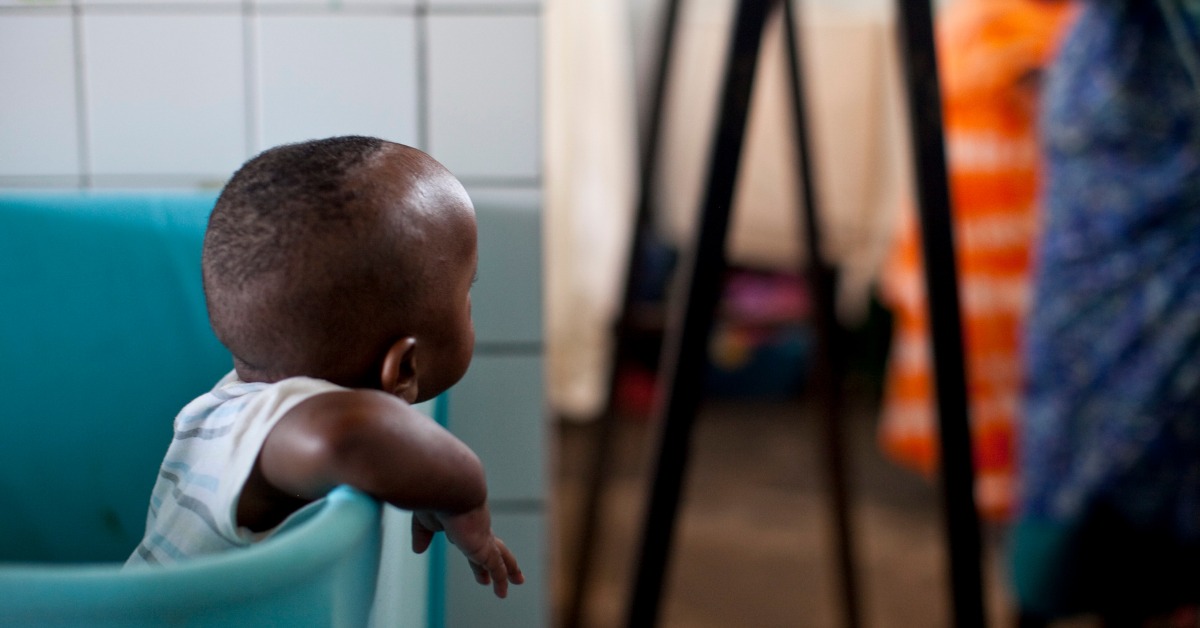One of the most challenging, but also rewarding, parts of my job is tracing the relatives of children who are living in orphanages, to see if they can be safely reunited with their families. A very proud day for me was when I found the family of a little boy called Dadu.
Dadu’s story
Dadu was seven years old when we first met and he had spent his whole life alone in the orphanage. He has difficulty speaking and he finds it hard to co-ordinate his movements so he uses a wheelchair. Dadu attends school regularly and understands his lessons, but in the classroom he stays very quiet. Every time I saw him, he would ask me “Mama? Papa?” and this would make me very sad. Looking through the orphanage records, I discovered that Dadu had been brought to the institution by his mum soon after he was born because she could see no way to raise him on her own. His mum did not live far away and so I made contact and began to visit. Sadly though, despite many meetings where I explained how we could support her to care for Dadu and help him to learn and develop, I could not persuade her to visit her son or even think about bringing him home again. That is when I began to look for Dadu’s birth father.
The search for Dadu’s father
Luckily, a lady who had seen me meeting with his mum approached me, and told me she knew his dad’s name and where he came from. Together with my colleagues in the reintegration team, I travelled to that area and, with help from the local authority, we set up a meeting with Dadu’s dad and his wider family. We sat together outside their home and we told them all about Dadu and why it was so important for him to live in the love of a family, and to not be left alone in an institution. After a long silence and deep reflection, Dadu’s dad acknowledged that our story was true and that Dadu was indeed his child. At that moment, I felt an inner peace, relieved and very happy. I thanked Dadu’s dad for his honesty.
Dadu’s grandmother, a very old woman, cried a lot. She went in a room and came back with her savings, saying “Please take this money to my grandson and tell him that he has a grandmother who wishes to meet him before she dies.” A few days later, Dadu’s dad came to visit him in the orphanage. When he saw his son, tears of joy appeared on his face. The following week, we took Dadu to visit his dad’s family. We talked to him about leaving the orphanage to live with his dad and what this would mean. Once we were sure he understood, we asked Dadu if he wanted to go to live with is dad. His answer was clear: “Papa, papa, papa!” he shouted. It took time to make sure Dadu and his family were completely ready to be reunited. This included improving their living conditions and showing the family how to care for Dadu safely at home.
She went in a room and came back with her savings, saying “Please take this money to my grandson and tell him that he has a grandmother who wishes to meet him before she dies.”
Bringing Dadu home
Finally, in October 2020, Dadu left the orphanage for good, to live with his dad and his extended family. It was such a joyful event. During the welcome ceremony, Dadu’s grandmother looked at him and said, “I saved the lives of children who sought refuge in my house during the genocide, and now the Lord has opened my eyes and given me the chance to meet my grandson.” As one of the team who monitors Dadu’s progress now, I am proud to see how his stepmother is taking care of him, carrying him on her back despite his age and taking her time to cuddle him. I feel speechless but filled with gratitude to God who gave me this job that restores joy in the hardest situations.
This article originally featured in the Winter 2020 edition of our supporter magazine, Hope.
Support our work Help reunite families
Support the work of Elizabeth and our other dedicated staff around the world, as they reunite children from orphanages with their families.
